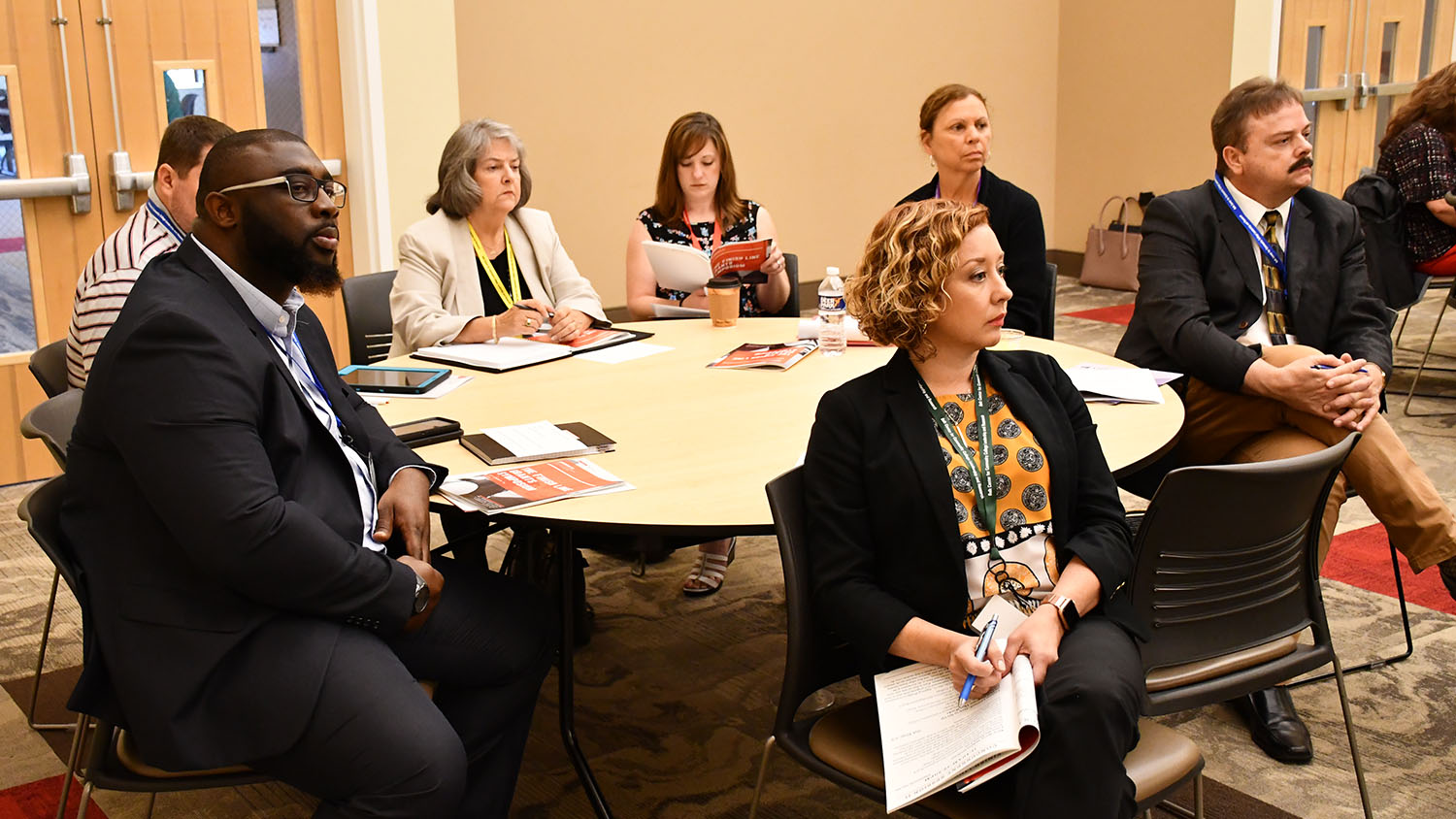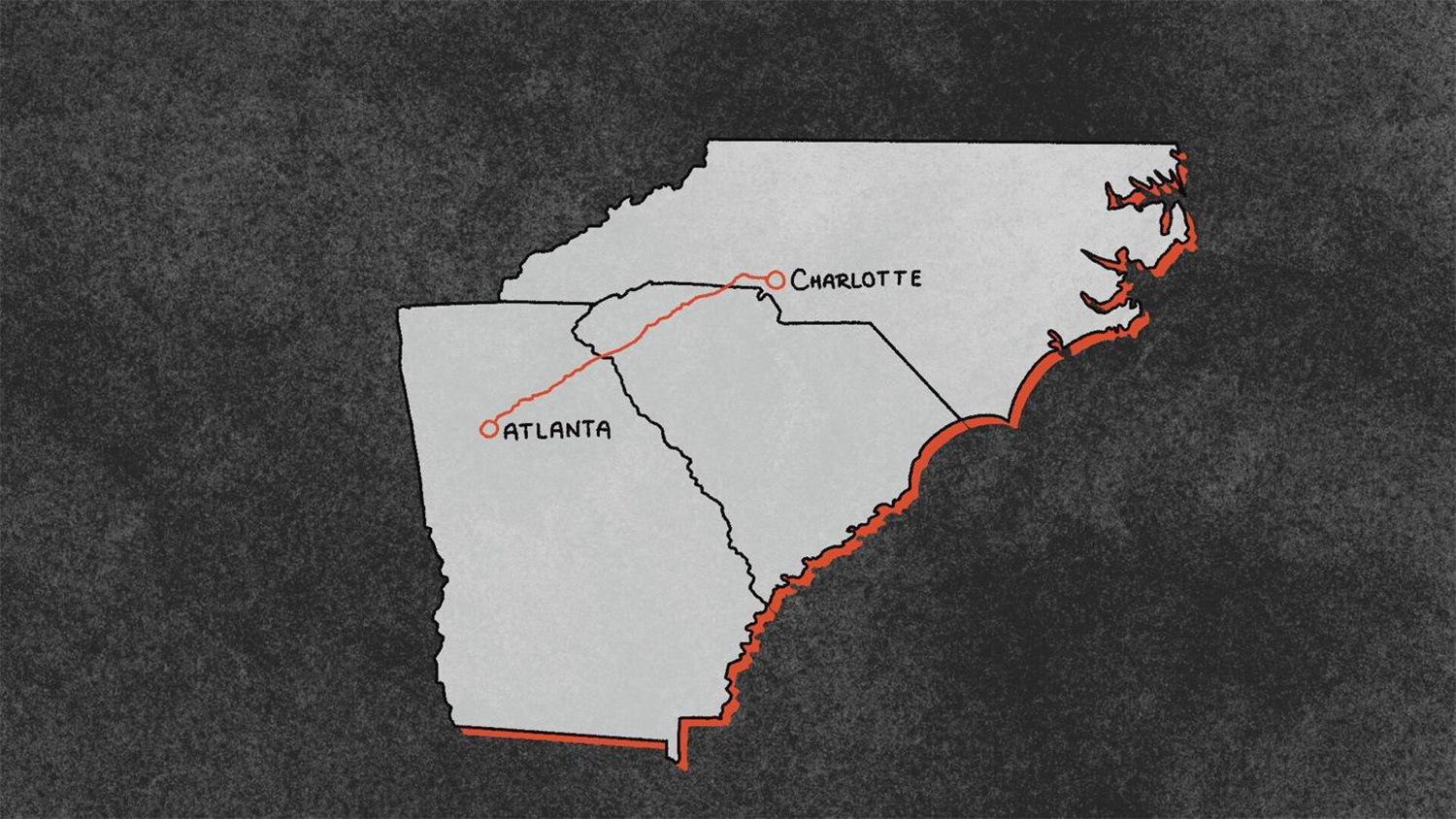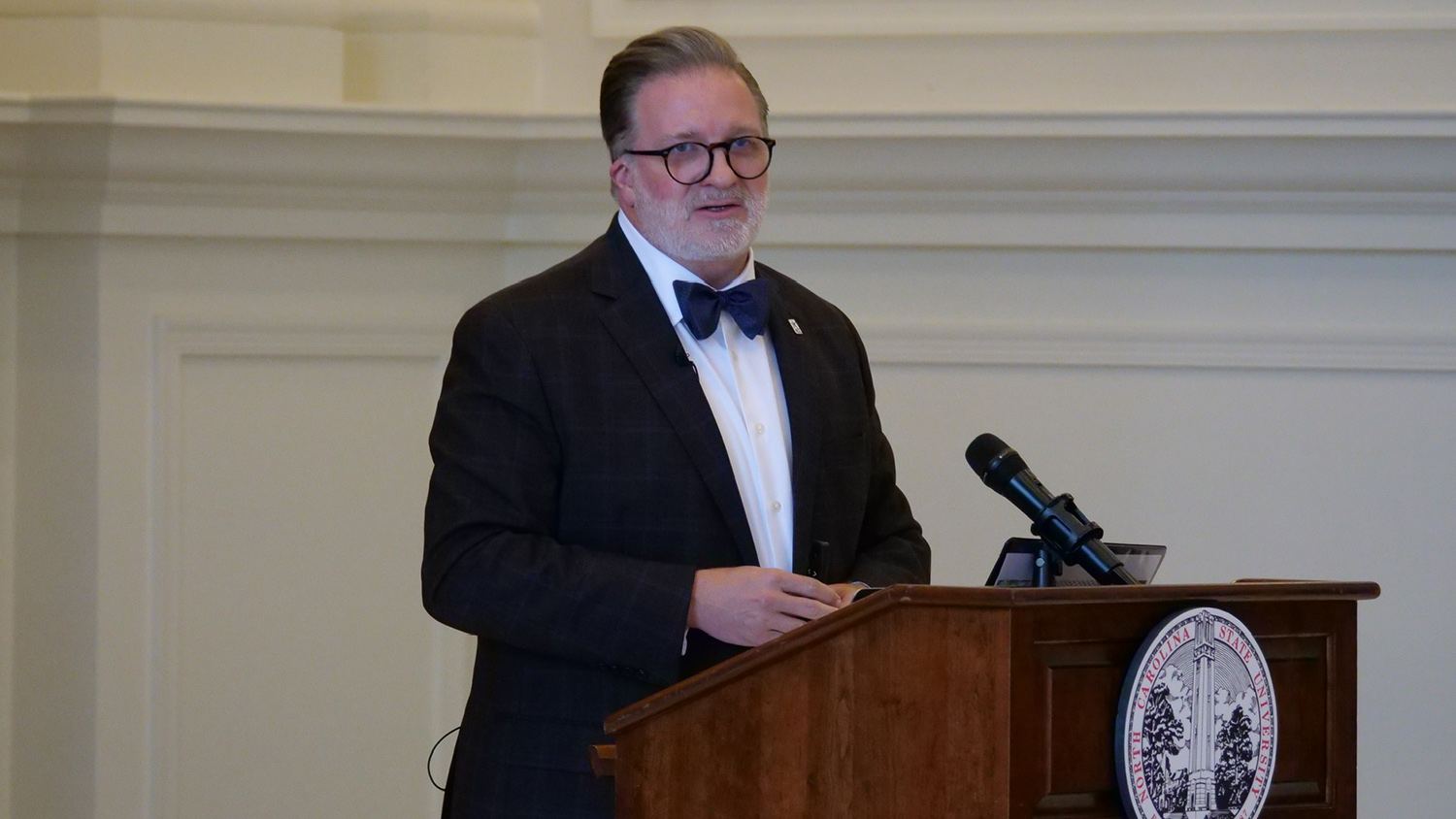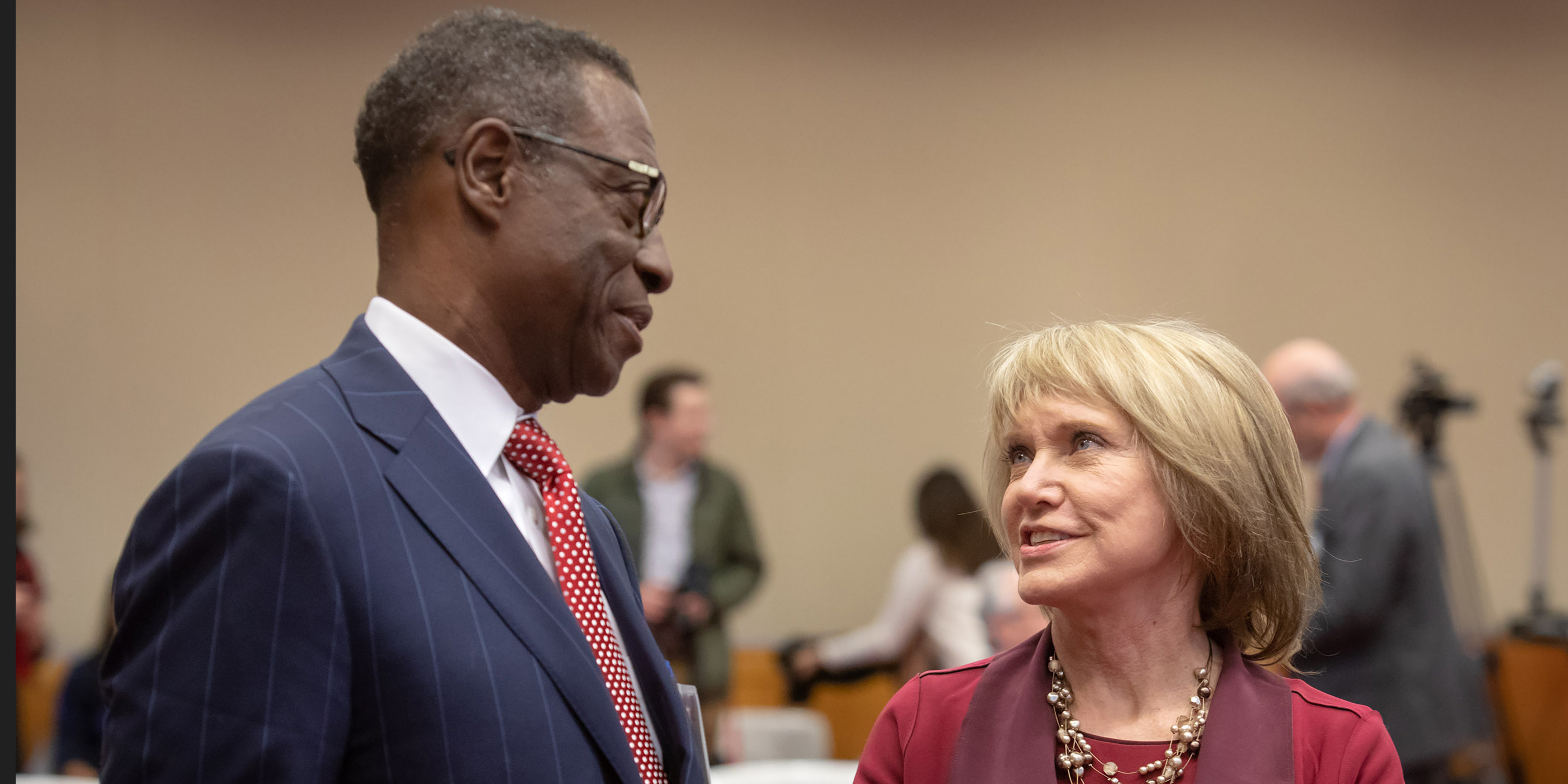Community College Professionals, Workforce Development Boards Share Best Practices, Build Relationships During Finish Line Grants Symposium

Community college and workforce development board representatives shared lessons learned and best practices they discovered during the first year of the Finish Line Grants Program at a symposium hosted by the NC State College of Education’s Belk Center for Community College Leadership and Research,* North Carolina Department of Commerce, Office of the Governor, and the North Carolina Community College System Office on Monday, Sept. 16, in Greensboro.
“This event [the Finish Line Grants Symposium] offers an opportunity for colleges who are at different stages of Finish Line to come together and find out more,” said Julie Crippen, director of grants management at Pitt Community College. “If you’re a new college, it gives you lots of information on how to start off. If you’re a workforce board who is trying to work out the kinks with the community colleges, it’s a great chance for you to learn. And for those who are already involved, it’s a chance to learn about best practices. It’s a sense of bringing everyone together for that common good.”
N.C. Governor Roy Cooper launched the Finish Line Grants Program in 2018 as an emergency aid grant. Finish Line is a federally-funded grant that provides emergency financial assistance to community college students. The program is designed to help students with unexpected financial emergencies in an effort to keep them in school to attain a credential or degree. To be eligible, students must have completed 50 percent of their degree or credential and have a minimum GPA of 2.0. Students can earn a maximum of $1,000 per semester. In its first year, Finish Line has awarded 2,000 N.C. community college students with a grant.
With the program concluding its first year, the symposium provided an opportunity for open discussions about the challenges faced and the positive experiences. Representatives from 53 of the 58 community colleges were in attendance, along with 23 workforce development boards.
Attendees shared many common challenges — one of those being the distribution process and timeline for funds. They discussed ways to get students access to the grants in a more timely manner, as well as shared ways in which other institutions have found alternative methods, such as gas and food cards, Uber cards or using a credit card to pay vendors.
Providing awareness of the program to students and having a more streamlined process were a few other common concerns. With the program still in its infancy, developing a set of parameters and guidelines has been a challenge for most institutions.
“Whenever you can attend meetings like this, you can compare what you are doing to what somebody else is doing and you learn from each other,” said Kelvin Thompson, director of single stop at Central Piedmont Community College. “When it’s new, you don’t always have a lot of parameters to go by and best practices. Being able to listen to other people and see what has worked for them has been helpful.”
With a keynote address from Madeline Pumariega, executive vice president and provost at Tallahassee Community, panel discussions, and informative breakout sessions, attendees were able to explore ways in which other institutions are using Finish Line Grants and discover resources and support systems that are available.
One of the biggest takeaways was the importance of the relationship between the community college professionals and the workforce development boards. Coming together with a shared understanding of best practices and ways to use the funds that work for everyone has birthed success.
“I have learned those partnerships [with community colleges] are incredibly important and the power of those relationships and how do you solve problems,” said Nathan Ramsey with the Mountain Area Workforce Development Board. “The powerful thing about Finish Line Grants is that it’s not one size fits all, so it allows for some customized, local solutions. The challenge is that, oftentimes, there aren’t black and white answers. I think we’ve learned a lot of takeaways about those community college workforce board career center partnerships and hopefully we’ll do better.”
Pumariega agrees about the importance of community college and workforce development partnerships. “There’s probably no better partnership in America than workforce boards and community colleges. For one simple reason: we are the talent and workforce engines for every single one of our communities in America. And for that, you should be applauded for being here, together, today.”
*The Belk Center is currently in the planning stage. It is in compliance with NC State’s Policy on Centers and Institutes.
- Categories:


